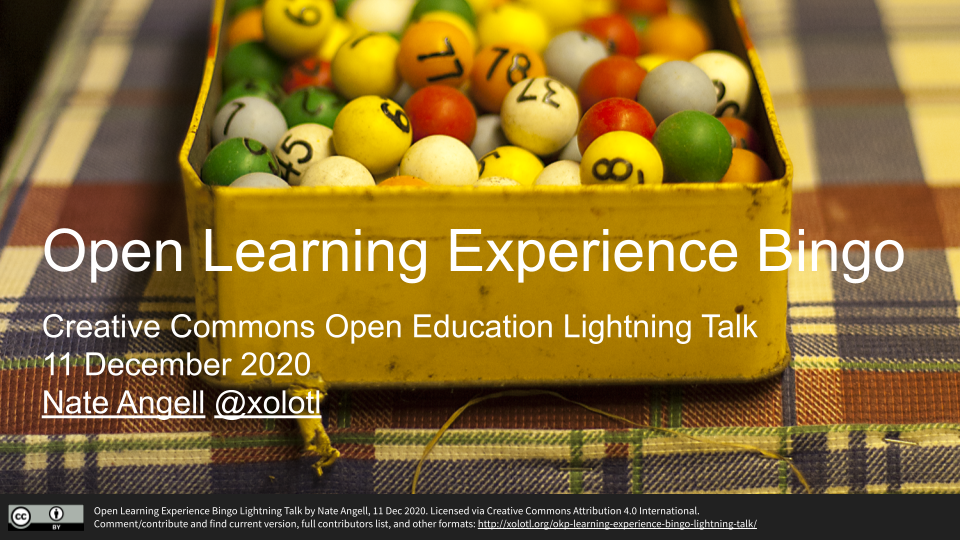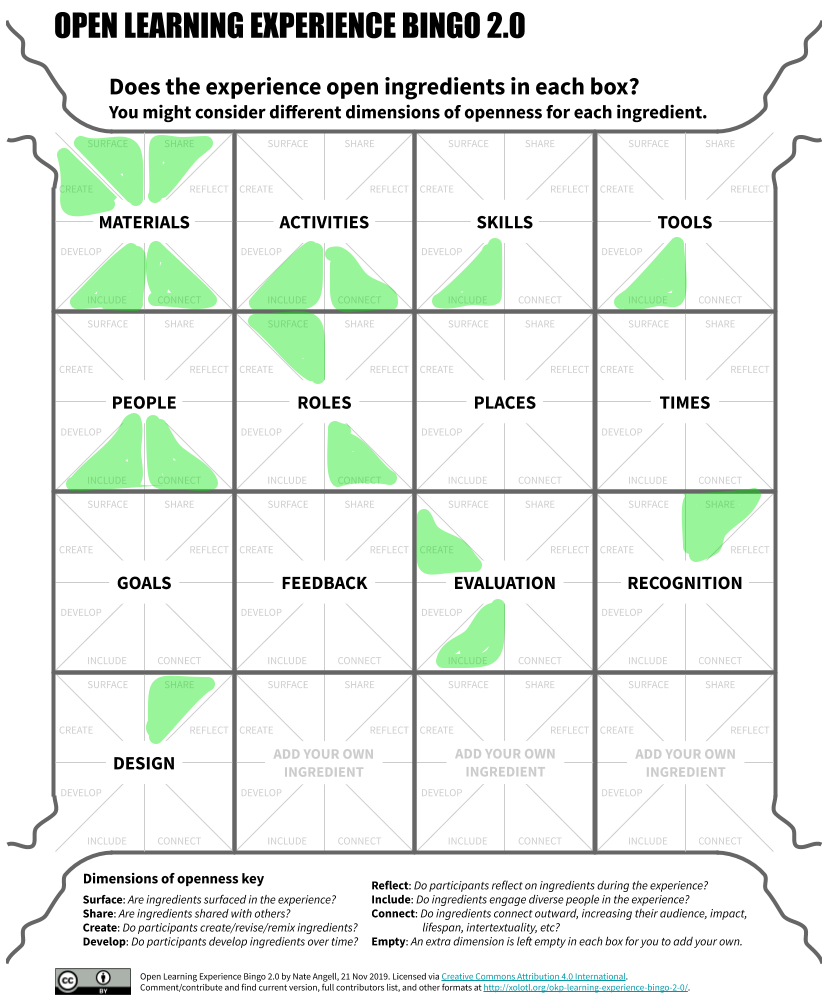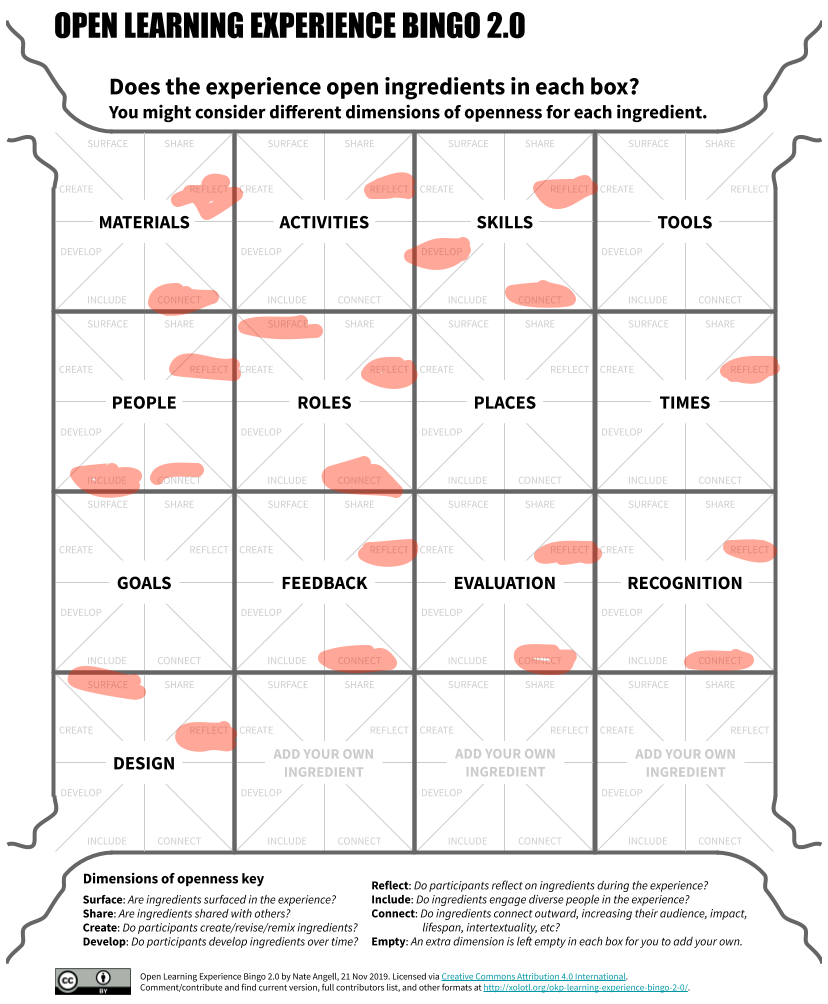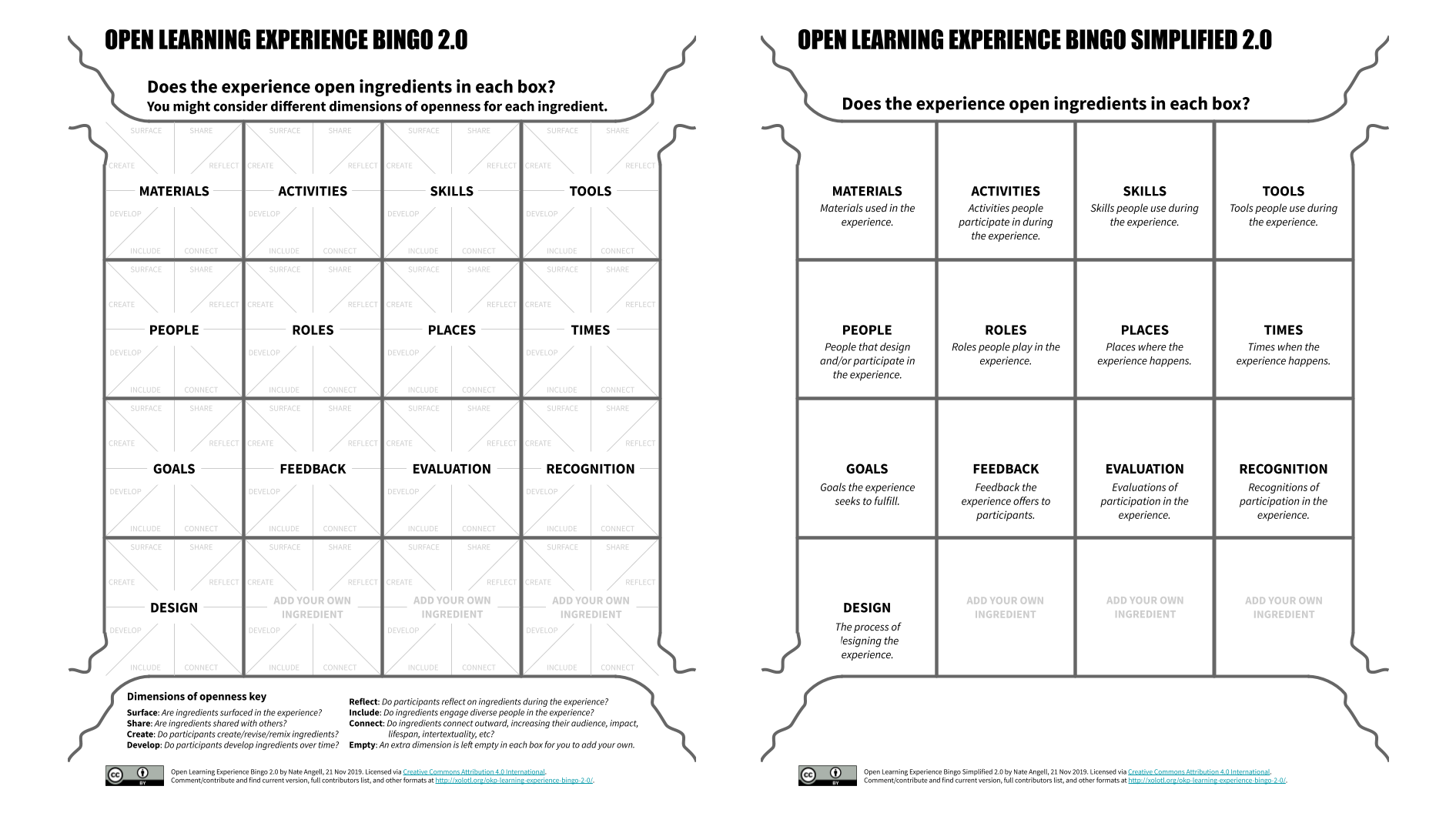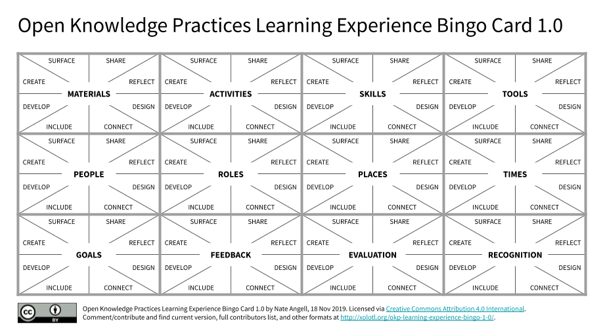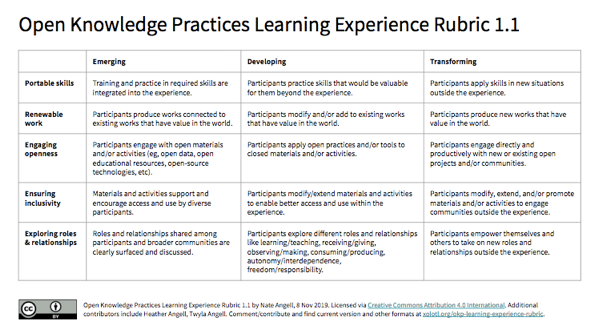In my first series of experiments applying open learning experience bingo to descriptions of actual learning experiences, I’ve started with experiences cataloged in the Open Pedagogy Notebook. This second bingo card is for the open learning assignment “Zines as Open Pedagogy” by Elvis Bakaitis. You can browse all the open learning bingo games I’ve collected to date.
Lightning Talk: Open Learning Experience Bingo
On Friday, 11 December 2020, I gave a lightning talk organized by Creative Commons about the ongoing collaborative project for a bingo “game” to surface and discuss the many different ways that educational experiences can “open” beyond traditional practices. You can access the presentation for my lightning talk, which references back to many resources here … Read more
